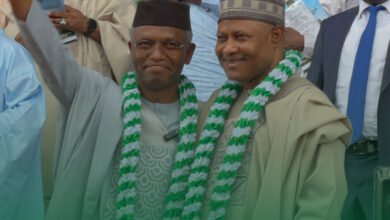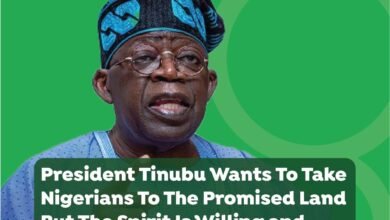
Workers across Nigeria eagerly awaited a new minimum wage announcement on May Day, only to be met with a frustrating delay. While efforts to finalise the revised salary are underway, the process has become bogged down by unrealistic demands and economic realities.
Both the government and labour unions share responsibility for the impasse. The tripartite committee tasked with setting the new wage remains locked in negotiations, with labour’s proposed N615,000 minimum wage sparking widespread criticism. Analysts and economists warn that such a drastic increase would cripple the already struggling economy and send the naira into a free fall.
Instead of out rightly meeting the demands around the new minimum wage, the Federal Government has only jacked up the salary scales of some workers to demonstrate its commitment to their welfare and well-being.
“Bogus Minimum Wage”
Though the current minimum wage of N30,000, established in 2019, is undeniably inadequate, the labour unions’ insistence on a nearly twenty-fold increase has been deemed “bogus, unrealistic, and outrageous.” Critics argue that such a demand would devastate the economy and inflict irreparable damage to the currency.
The “FG Package”
Instead of a blanket minimum wage increase, the Federal Government has for now announced a 25% to 35% salary raise for specific sectors covered by various salary structures. These include the Consolidated Public Service Salary Structure (CONPSS), Consolidated Research and Allied Institutions Salary Structure (OCONRAISS), Consolidated Policy Salary Structure (CONPOSS), Consolidated Para-military Salary Structure (CONPASS), Consolidated Intelligence Community Salary Structure (CONICCS) and Consolidated Armed Forces Salary Structure (CONAFSS).
For polytechnics and colleges of education, the new salary structure involves the Consolidated Polytechnics and Colleges of Education Academic Staff Salary Structure (CONPCASS) and Consolidated Tertiary Educational Institutions Salary Structure (CONTEDISS).
Organised labour, however, has dismissed these measures as a “mischievous” attempt to sidestep their demands.
NLC President Joe Ajaero, highlighting the inadequacy of the N30,000 minimum wage, decried the lack of a concrete wage increase and the inconsistent implementation of existing wage awards by some state governments.
While the fuel subsidy removal prompted both federal and some state governments to temporarily increase salaries, concerns linger regarding long-term sustainability.
The federal government’s six-month wage supplement of N35,000, for example, raises questions about future commitment.
Similarly, Oyo state’s N25,000 wage award, though a welcome step, leaves many workers yearning for a more substantial and permanent improvement in their take-home pay.
Balancing the negotiation
Beyond the economic arguments, it is crucial to acknowledge the human cost of the current minimum wage. For many Nigerians, N30,000 barely covers basic necessities, forcing them to live hand-to-mouth and struggle to afford essentials like food, housing, and healthcare.
However, while acknowledging the urgent need to improve worker well-being, analysts have warned labour unions must temper their demands with economic realities.
“Nigeria’s current economic landscape cannot withstand the crippling effects of any form of industrial action. The Federal Government and organized labour must prioritize a swift and amicable resolution to the minimum wage negotiations,” Kayode Ojewole, a Lagos-based capital investment analyst stated.
“Implementing the promised wage increase from May 2024 is not just a matter of fulfilling a promise, but a crucial step in ensuring economic stability and fostering a more prosperous future for all Nigerians,” he added.
However, achieving this goal requires a balanced approach that considers both worker needs and the long-term health of the economy.
While seeking a common ground, the government must seriously consider potential revenue generation measures or economic reforms that can support a higher minimum wage in the long run.
Learning from other countries that have successfully navigated minimum wage adjustments in similar economic situations could also offer valuable insights and potential models for Nigeria to adapt.





